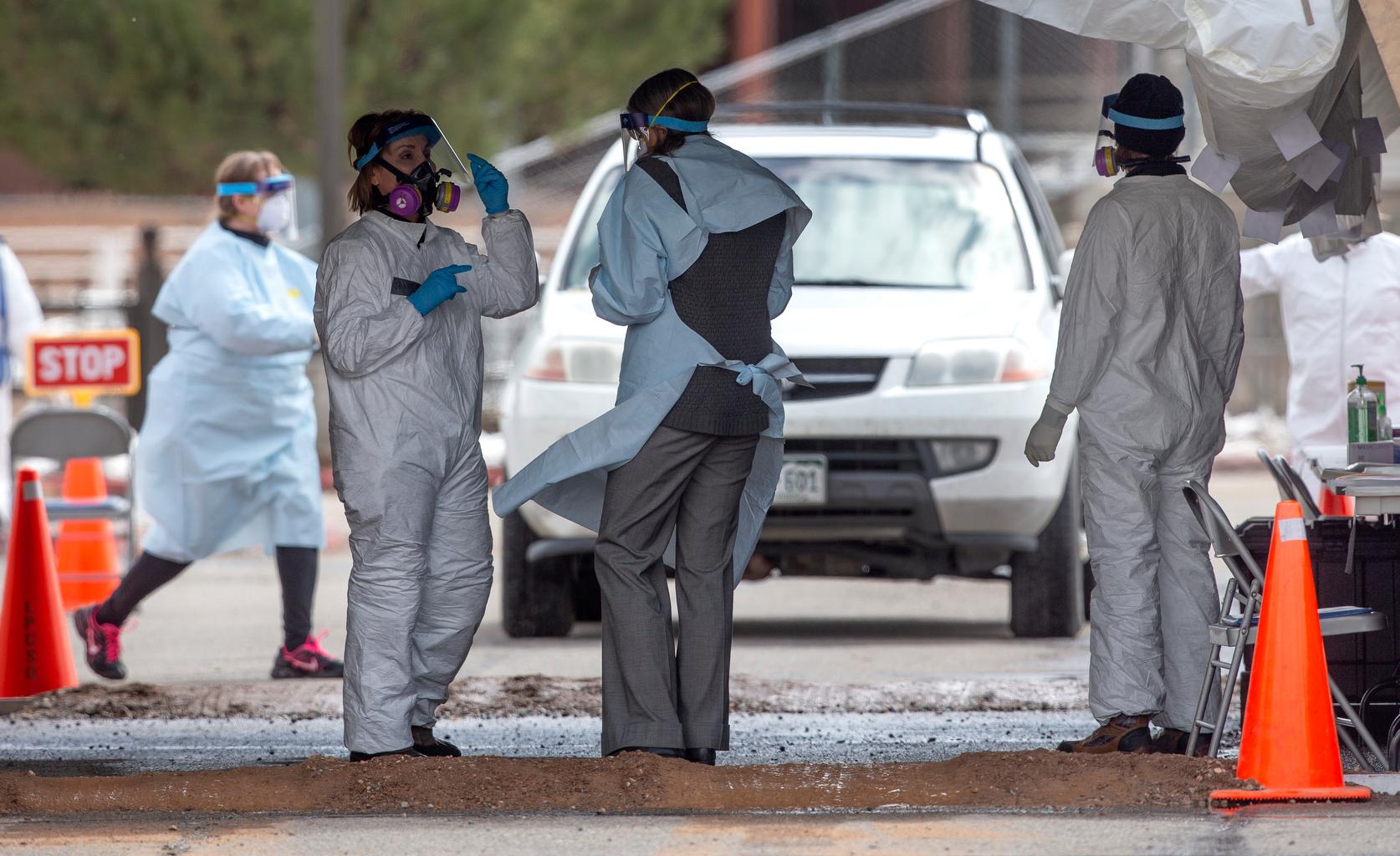
On March 13, while visiting Summit County from her home in Michigan to see friends, Lauren Verity, 31, started having trouble breathing. She also had developed a dry cough.
She went to the emergency room at St. Anthony Summit Medical Center, where she was tested for COVID-19 and told to go back to her friends’ house to quarantine. Verity waited the 72 hours the doctors said it would take to get results, but none came. Another day went by and another, but still no results.
Verity's case isn’t unusual. It can take several days to get test results in Colorado. Like most of the country, there are still not enough testing kits and protective equipment in Colorado to run tests for all suspected COVID-19 cases, or for every person who comes in contact with someone who’s suspected to have it. Lab workers sort each sample that does come in by priority, pushing people with less serious cases and lower risk factors down the line.
After six days, and moving back her flight home twice, Verity did finally get her results. She was negative for COVID-19, but her friends — who had self-quarantined along with her — had already missed days of work and gone unpaid.
"People weren’t paying attention to the economic impact of people not going back to work for six days," Verity said. “It felt like we were just getting lost in the shuffle."
Lengthy waits for test results have interrupted people’s lives and heightened anxiety among those who suspect they may have COVID-19. They have also led to a significant lag in the data available on the number of COVID-19 cases and where the disease is spreading — which makes it harder to contain.
“The data we have about the overall presence of COVID is a retrospective look,” said Glen Mays, the chair of the Department of Health Systems, Management and Policy at the Colorado School of Public Health. “What we see today in terms of positive tests is a rough approximation of where this disease was sometime in the past.”
But while delayed results can have a significant impact on both individuals and the public at large, like most of the rest of the country, Colorado officials are restricted in what they can do to increase testing. Labs’ testing capacities are constrained by the amount of equipment available, the number of qualified staff and the physical space in the lab for running tests.
Colorado’s state lab can now run 300 to 600 tests per day. This is a significant increase from the 160 tests-per-day capacity that the lab started with, but it’s still not enough to test everyone who may have the disease. These limits have led the state to adopt a priority system, testing only those with severe symptoms or high-risk factors and then triaging the tests that are taken. People with mild symptoms may never get tested. Instead, they’re asked to stay home and self-quarantine.
High priority tests include those for the critically ill and for health care workers who are at risk of spreading the disease to other sick people. CDPHE also prioritizes tests from specific geographic areas that are chosen strategically to help the department better understand the spread of the disease.
The state lab is processing these high priority samples within 48 hours, but tests that don’t meet these criteria could take between three and seven days to process. The tests that the state collected from drive-thru testing facilities last week were sent to the commercial lab LabCorp, which is still processing the results. State epidemiologists take another 24 hours or more to check testing data before sharing it with the public, further extending the gap between the actual progression of the disease and what people can find out about it.
There are also discrepancies in testing from county to county. CDPHE has not distributed testing kits to every county. According to a CDPHE spokesperson, the department chooses which counties receive kits based on where the state needs additional data to understand COVID-19’s spread.
Eric Aakko, a spokesperson for the Weld County Department of Public Health, said his department is still waiting on test kits to open up free community testing clinics. In the meantime, the county is relying on health care providers to test their own patients or to send samples to commercial labs.
"Most health care providers have some kind of sampling kits on hand," he said. "The problem is that we have so many people that are presenting with symptoms that there just aren’t enough."
These differences in testing in different parts of the state have also led to inaccuracies in the geographic data about where COVID-19 is present in the state. Eagle County has one of the highest reported numbers of positive cases, but public health officials on the ground there say that data is likely skewed.
"Our number of lab-confirmed cases is more representative that we are testing than it is of illness in our community,” said Becky Larson, an epidemiologist and the deputy director of Eagle County Public Health and Environment “We had health care providers that were willing to test early."
The efforts of private companies, labs and hospitals have also led to a patchwork of testing and data availability. Hospitals, commercial labs and companies that are running COVID-19 tests are not required to tell the state the results. For those that choose to self-report, the state database only accepts results from tests that sample a patient’s RNA. Antibody tests, like those being offered to all of San Miguel County by one private company, are not yet tracked. If antibody tests prove to be reliable, CDPHE says they will incorporate those results in the future.
While the slow results and discrepancies are frustrating to patients and officials, public health experts say that this priority system is the best possible solution while tests are still limited.
“The delays also reflect an appropriate public health response to the limited testing capacity right now,” Mays said, adding that prioritizing tests for healthcare workers and people in hospitals helps prevent the further spread of the disease. "We need to know for those cases as rapidly as possible what their disease state is because that’s used to make important decisions.”
To eventually ramp up testing, the federal government is sending limited numbers of additional supplies from the Strategic National Stockpile, a cache of health care supplies kept for the event of a national health emergency. CDPHE announced Thursday that they have received 4500 test kits specifically for healthcare workers, and expect another 2500 next week for the same purpose.
With more tests, the state could be more strategic with where it deploys resources and what restrictions it puts on the public. In the meantime, according to Mays, the only significant tool the state of Colorado has to combat the spread of COVID-19 is heavy-handed blanket stay-at-home orders like the one issued by Gov. Jared Polis on Wednesday.
"Without more precise information about the scope and scale of this epidemic we have to use these larger more blunt kind of instruments to control the disease,” he said. "We are having to use a chainsaw not a surgeon’s scalpel and that’s what these large scale social distancing policies are."









